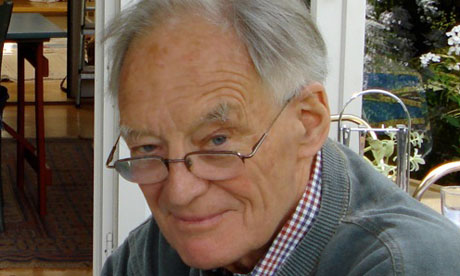Sir Sandy Macara, who has died aged 80, was the chairman of the British Medical Association's medical ethics committee from 1982 to 1989. When he was appointed, the BMA was striving to overcome its image as the "British Money Association" – interested only in promoting doctors' terms and conditions of service. Aided by brilliant staff, Sandy tangled with Margaret Thatcher's government over issues such as the need to keep medical records confidential from the police; the right of girls under 16 to receive confidential contraceptive advice and supplies; how to handle the emergent Aids epidemic; and the need to regulate new infertility treatments and surrogacy.
In 1993 he became the BMA's chairman of council in something of a palace coup after the association lost confidence in the more emollient approach of his predecessor, Jeremy Lee-Potter, to the Conservatives' introduction in 1991 of an internal market to the NHS. The BMA, to this day, remains unreconciled to the use of market-like mechanisms in the health service.
Sandy had no doubt at all where he stood in that debate. He labelled the internal market an "uncontrolled monster" and accused the government of a "politically inspired mission" to wreck the health service. He was no kinder to Labour when it initially refused a big boost to the NHS budget when it took power in 1997, having promised to stick to the Conservatives' spending plans for its first two years in office.
The power of Sandy's public rhetoric at times sat oddly with his dapper, considerate, urbane and more private side. He earned respect from ministers when they tangled over the many issues on which the government of the day and the BMA disagreed. His five years as chairman of council ended in 1998, when he was knighted.
A son of the manse – both his father and grandfather were Church of Scotland ministers – Sandy was born and grew up in Irvine. The Ayrshire burr never left his voice despite his spending the overwhelming part of his career in England. The softness of the voice and the manners, always, of a perfect gentleman, disguised a distinct crusading steel when it came to fighting for causes in which he believed.
After attending Irvine Royal academy, he studied medicine at Glasgow University, overcoming a childhood stammer to achieve success in debating. He then went to the London School of Hygiene and Tropical Medicine, where his postgraduate research was directed by the distinguished epidemiologist Roy Acheson.
In the early 1960s he was an assistant medical health officer in Bristol at a time when local government – as it is now to do again – ran public health. He also became a lecturer and consultant in the city, where he finished his career as head of Bristol University's department of epidemiology and public health medicine.
One of his many students was Sir Liam Donaldson, who became chief medical officer for England and was instrumental in instituting the ban on smoking in public places. Sandy, an ex-smoker, was an early, tireless and outspoken campaigner against the tobacco industry.
Although involved in activism as a junior doctor – he organised a march and even a hunger strike in protest at the standard of the trainees' hospital accommodation – his involvement with the BMA occurred almost by chance when he went along to its annual representative meeting because it happened to be in Bristol in 1967. He was instantly captivated by what he described as the barely controlled chaos of the meetings of what the BMA then liked to call the "doctors' parliament", rapidly realising the lobbying power that the trade union for doctors could wield.
The BMA was important to Sandy, but was only one part of his life. He was a consultant to the World Health Organisation for more than 20 years, became president of the National Heart Forum and used his authority passionately to defend the measles, mumps and rubella vaccine when now deeply discredited research appeared to link it to autism.
He is survived by his wife, Sylvia, whom he married in 1964, and their children, Alexandra and James.
• Sandy (Alexander Wiseman) Macara, doctor and administrator, born 4 May 1932; died 21 June 2012











